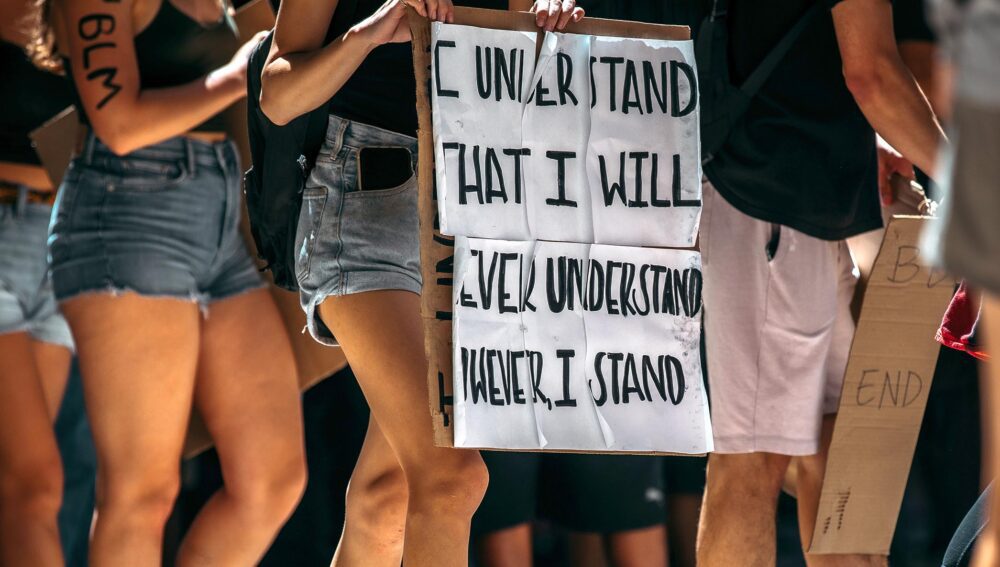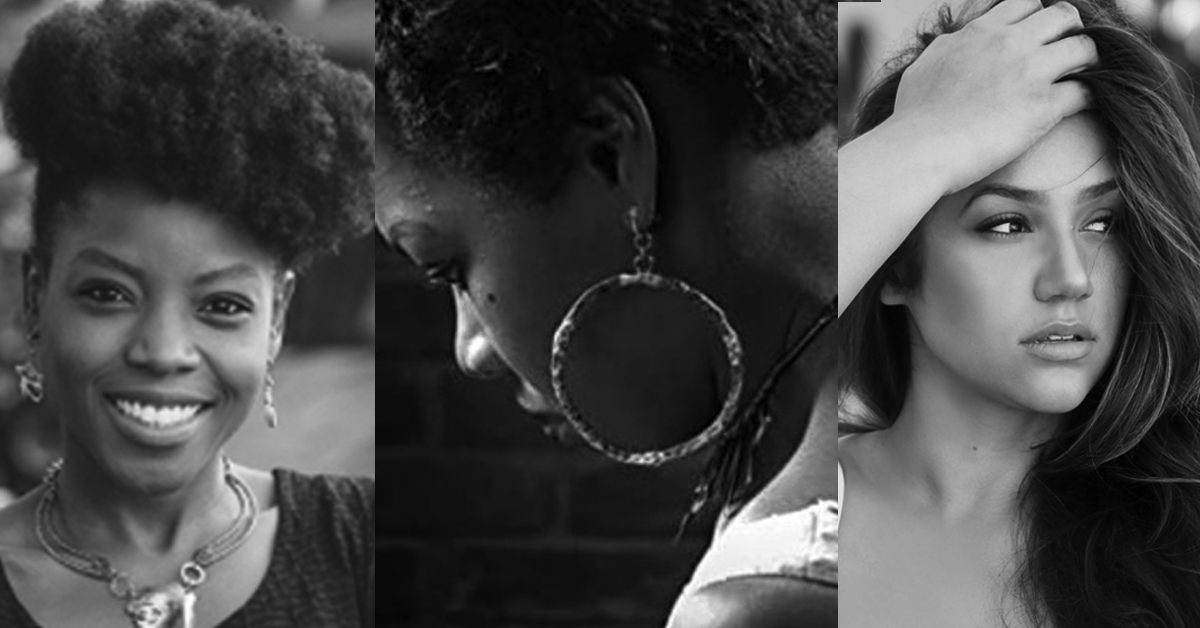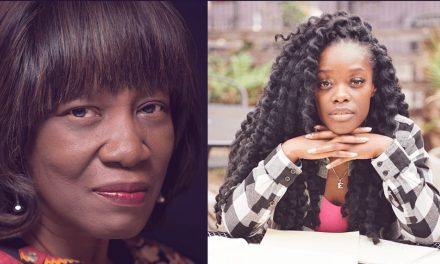Should I cut out the people in my life who do not agree that Black Lives Matter?
No. Trust me, I understand the temptation. It can feel like a waste of time and energy to stay connected with people who refuse to recognize the basic human rights of your other friends and loved ones. But if you block out the racist people from your life, you are still using your privilege to make yourself comfortable.
Instead, as an ally, use your established relationship with these people to help change their minds. Help me do what I cannot do.
Some people will never, ever, ever listen to me, simply because I am Black. That’s just how it is. But that doesn’t mean that every one of those people are beyond change. These same people may very well listen to you. So speak up.
I want to prepare you: it will be uncomfortable for you. It will be work. You will need to have the patience of a teacher calming a 2-year-old throwing a tantrum.
Don’t waver in your beliefs. Don’t excuse wrong behavior. DO lead those you know to the knowledge of how they can be better.
Bring up race with those to whom you’ve been silent on the issue. Which one of your white friends and family gets quiet and chooses to stay silent when you bring up racial justice? Seek them out and ask them why they stay quiet about a matter of life and death.
Go through your Facebook friends, the people you follow on Instagram and Twitter. Take note of the ones who haven’t said anything. Tell them you hear their silence.
As an ally, your job is not to shy away from conflict, but to hold those around you accountable.
What should I do when I see police interacting with Black people?
Stop. Be a witness. Pull out your phone, and record it.
I know it feels wrong. When we’re growing up, we’re all socialized that when a teacher reprimands a student, we should avert our eyes. “Don’t get involved when those in power are asserting their power,” we’re taught. We are supposed to trust what they’re doing and stay out of it.
But today, while we’re facing down this epidemic of police violence against Black people, you need to hold police officers accountable when you see one talking with a Black person.
Cops often act differently when they know they will have to justify their actions. So make your presence known, without making a spectacle of the situation.
By stopping, you’re also showing support to the Black person in the interaction.
I can tell you, it is overwhelming and terrifying to be a Black man stopped by the police. Every time I’ve been stopped, I’ve been alone, with two to four cops around me. When you stop to be a witness, you are telling that Black person, “You are not alone. I care about what happens to you.”
What about the riots? Why can’t they be peaceful?
Stop talking about peace. Start talking about change. Our police system is not peaceful in and of itself; rather, it’s the root of too much violence. Black men are in danger. We’re being hunted. We are, I am, scared for our lives. If you truly want peace, focus on the cause.
Because as the protesters have been telling us, there can be no peace until there is justice.
Why does it matter if I post about BLM on my social media?
I get this question most often from those of my white friends who prefer to “keep politics off social media.” Their feed is usually full of lighthearted jokes, memes, family photos, pictures of their pets, cooking recipes, and even inspirational quotes. Nothing too heavy. Social media for them is fun; it’s a party where they get to mingle with all their friends.
But I ask you, what if social media was like a physical, in-person, real party?
Imagine COVID-19 doesn’t exist, and you’re in a room surrounded by friends. I stumble into the party with a gash on my head. I’m bleeding. I’m doing my best to apply pressure to the wound, but there is a lot of blood. What do you do?
Do you turn to your other friends and make a joke about something random? Do you pull out a picture of your last family vacation and tell me about how special that time was? In other words, do you try to keep the party going? Keep the mood light?
It sounds ridiculous, right?
Hopefully, you would see me bleeding and immediately ask, “Are you okay?” or “How can I help?” Then, you’d do what you could to help: call for the ambulance, make sure all your other friends give me space to breathe, help apply pressure to the wound, or talk with me to keep me calm.
Posting about BLM is not the key to fix the wound of injustice in America. Rather, it’s the bare minimum. It is the moment you stop the party and ask, “how can I help you?”
If you are my friend, the least you would do is acknowledge my pain.
What else do you think we need to do?
We need white people to fight against a system that benefits you.
And for you to do that, you need to learn about this system and how it truly works, outside of your own experience. Then, we need you to commit to changing that system.
This change needs to happen on both the micro level, and the macro level.
The macro is about changing our systems — the police, education, economics, etc. It is about radical reform, reshaping our whole imagination of those systems. It’s about focusing less on what we keep and more on what needs to change, on drawing a completely new blueprint. The system we have now works exactly how it was designed. So we must change the design.
Changing the micro will be harder, and it’s also where we need you to be an ally. Changing the micro requires white people to reflect, and to challenge their daily habits and thoughts, like a smoker working to quit.
Like the urge to seek out nicotine, institutional racism is always present, almost always just “there.” Like that urge to smoke, we know deep down it’s not good for us. Sometimes we don’t even think about it, before we turn to it. Other times, we are consciously aware of it, and sometimes even lean on it as a crutch.
Black people are demanding a huge task of our white fellow humans: we’re asking you for the equivalent of a lifetime smoker giving up cigarettes. We’re asking you to quit racism with the same intention, dedication, and time it would take to quit smoking.
Read “how to” books. Study scholarly work by Black people. Take time to appreciate Black art. Ask your white friends to help keep you accountable. Ask your Black friends — especially Black women — how you can best support them in this time. Find tools and activities that help you interrogate your role in the systemic racism all around you. And listen.
Each person’s path to quitting is different, some of us will need more help than others, and some of us will back slide and have to try again. The key is to keep trying.






